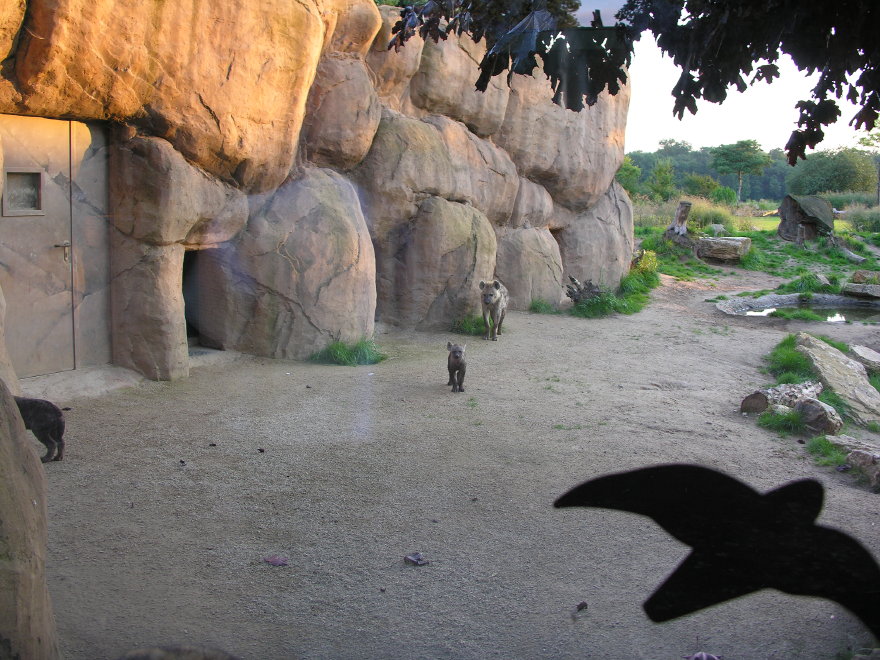Free Photo: Spotted Hyenas at the Leipzig Zoo, Germany
[Previous Page | Index | Next Page]

30leipzigzoo.jpg
A spotted Hyena pup with it's mother at Zoo Leipzig in Germany.
Spotted hyenas are famed scavengers and often dine on the leftovers of other predators. But these hardy beasts are also skilled hunters that will take down wildebeest or antelope. They also kill and eat birds, lizards, snakes, and insects.
In an increasingly overpopulated Africa, hyenas and humans come into frequent contact. In fact, the Maasai people of Kenya and Tanzania actually leave their dead to be consumed by hyenas. However, these intelligent and bold animals will raid food stores and crops and are blamed for many livestock and even some human deaths. In some areas they have been heavily hunted as destructive pests.
Spotted hyenas are the largest of three hyena species. Brown and striped hyenas are the other two. Although hyenas appear similar to dogs, they are actually more closely related to cats. They live throughout much of Africa and eastwards through Arabia to India. Spotted hyenas live together in large groups called clans that may include up 80 individuals and are led by females.
Spotted hyenas have good hearing and sharp eyesight at night. They are fast and can run for long distances without tiring. Packs work together effectively to isolate a herd animal, sometimes one that is ill or infirm, and pursue it to the death. The victors often squabble over the spoils, either among themselves or with other powerful animals like lions.
Spotted hyenas are quite vocal and make a wide variety of sounds, including the "laughing" that has long been associated with their name. (source: http://animals.nationalgeographic.com/animals/mammals/hyena.html)
[Previous Page | Index | Next Page]
This page last updated January 2015
Visit http://www.TechnologySite.org for free
photos and lists of inventions and technology. Visit http://www.ClimateChangeFacts.info for unbiased
information about climate change. Visit http://www.ClimateCooling.org for eye-opening
biased information on global cooling and climate change and visit http://www.OceanAssoc.com for fisheries
and oceans consulting services.